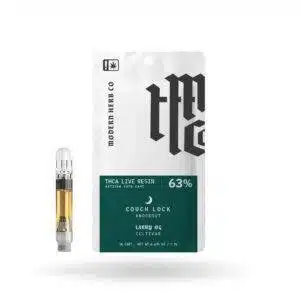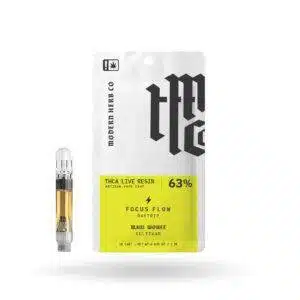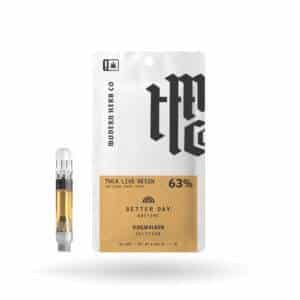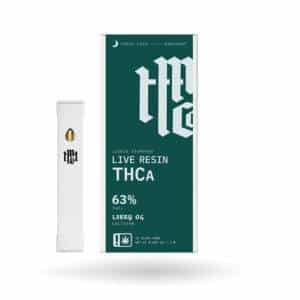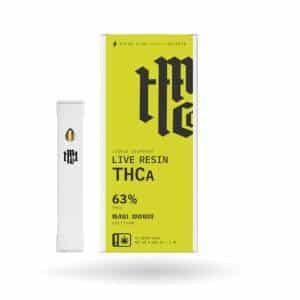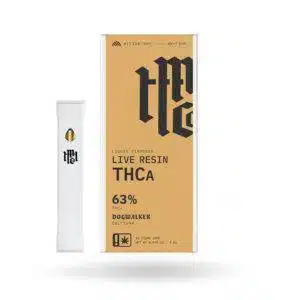How Long Does THCA Stay In Your System?
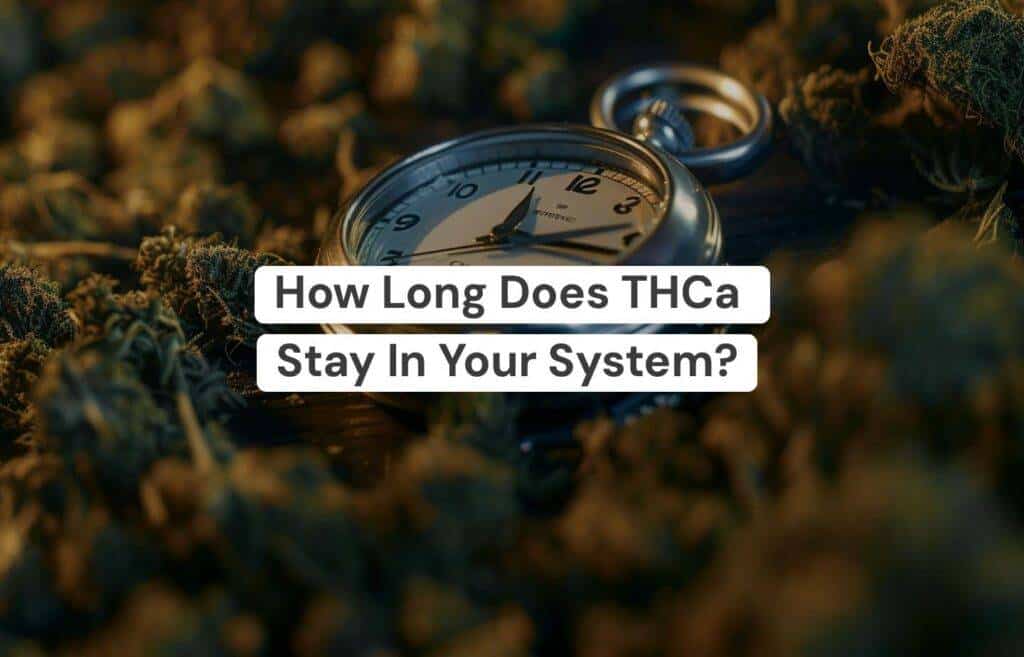
Exploring the world of cannabis raises questions like, “How long does THCA stay in your system?” Understanding THC and THCA can be complex, whether you’re a novice or an experienced user facing a drug test. This guide delves into the science behind these components, clarifies how cannabis interacts with drug tests and sheds light on your body’s natural detoxification processes. Stay tuned to uncover the inner workings of your body post-consumption without the technical jargon, potentially altering your perspective on future cannabis experiences.
What is THCA?
- What is THCA?
- THCA Effects
- THCA vs THC
- How Long Does THCA Stay in Your System?
- How Much Time Does THCA Remain in Your Urine?
- What Is the Duration of THCA Retention in the Blood?
- How Long Does THCA Stay in Your Saliva?
- How Much Time Does THCA Remain in Your Hair?
- Does THCA Show Up on a Drug Test?
- How Can THCA Result in a Positive Drug Test Result?
- The Body's Absorption and Metabolism of THCA
- How Long Is The THC Metabolite Detected?
- Where to Buy THCA Products?
- Final Thoughts
- Frequently Asked Questions
Richly distributed throughout the cannabis plant, THCA functions as a precursor to the psychoactive THC, which is mainly present in newly harvested cannabis. Contrary to common belief, THCA lacks psychoactive properties, distinguishing itself from traditional Delta 9 THC and its associated high.
This unique characteristic has piqued the interest of individuals seeking potential benefits without psychoactive effects. However, upon undergoing decarboxylation, typically through processes like heating or aging, THCA transforms into psychoactive Delta 9 THC. Thus, whether you prefer psychoactivity or not, THCA presents an intriguing option. It is important to remember that the effects are different based on how it is consumed.
Terms like “THCA diamonds” and “THCA tinctures” may come up as you learn more about cannabis products. These formulations preserve THCA’s non-psychoactive nature, appealing to individuals interested in potential therapeutic advantages without the typical cannabis-induced high.
THCA Effects
One non-psychoactive ingredient in cannabis is tetrahydrocannabinolic acid, or THCA. Studies indicate that Delta-9 THC and THCA may have comparable potential advantages. Some THCA consumption methods do not produce euphoric effects, so they are a good choice for people who want the possible health benefits of cannabis without the high. Furthermore, because THCA is not psychoactive, it can be consumed in ways that do not result in intoxication, which is advantageous for people who need to retain a level of awareness. The effects are not guaranteed and the FDA has currently not approved any THCA products.
THCA vs THC
It is critical to recognize the differences between THCA and THC when making comparisons. THCA is a non-psychoactive compound naturally present in raw cannabis, lacking the intoxicating effects associated with THC. In contrast, THC is the primary psychoactive component in cannabis, responsible for the “high” sensation commonly detected in drug screenings. The transformation of THCA into THC occurs through decarboxylation, a process triggered by heat during the smoking or cooking of cannabis products.
It is important to comprehend the differences between ingesting THCA and THC products, particularly if you want to use hemp-derived THC products for potential health benefits. Opting for THCA products may align better with your objectives if you aim to avoid the psychoactive effects linked to THC. This knowledge also plays a significant role in comprehending how different THC products can impact drug test outcomes, as conventional tests are designed to detect THC metabolites.
How Long Does THCA Stay in Your System?
Several factors come into play when considering how long THCA stays in your system. Drug tests usually target THC rather than THCA, so information on how long THCA stays in the body is less than for THC.
The timeframe in which THCA stays in your system can be influenced by variables such as metabolism, body composition, and frequency of use. Based on these factors, it is suggested that THCA may last anywhere from a few hours to several days. Since THCA transforms into THC through decarboxylation, consuming products rich in THCA could result in the presence of THC metabolites if this conversion occurs.
THCA exits the system relatively quicker than THC due to its non-psychoactive nature and distinct metabolic processing. Nonetheless, it’s essential to be aware that using THCA-rich products can impact drug test outcomes. Concerned about employment screenings, individuals often inquire about THCA drug tests. Understanding how your body processes different cannabinoids can help mitigate potential risks. It’s crucial to note that even though THCA is non-psychoactive, heating can convert it to THC, which has a longer detection window in the body.
How Much Time Does THCA Remain in Your Urine?
Determining the presence of cannabinoids like THCA in urine tests presents a complex scenario. Conventional urine drug screenings are designed to identify THC metabolites rather than directly detecting THCA. However, advancements in cannabis detection methodologies may encompass other cannabinoids, potentially resulting in a positive test outcome.
It’s generally understood that THCA tends not to linger in urine for extended periods, particularly when compared to THC metabolites. Nonetheless, the duration can be influenced by factors such as the frequency of THCA consumption and individual metabolism rates.
If you smoke THCA prerolls or use THCA tinctures on a regular basis, you should be aware that any conversion to THC via decarboxylation may result in measurable THC metabolites in your urine. This consideration is particularly significant if you are subject to routine drug screenings, necessitating caution to avoid inadvertent cannabis consumption.
What Is the Duration of THCA Retention in the Blood?
The detection window for THCA in blood tests tends to be relatively short, making them more suitable for identifying recent drug use.
In contrast to psychoactive THC, which can linger in the bloodstream for extended periods depending on usage patterns, THCA is less likely to persist in the blood for significant durations. Blood tests are mainly used to identify recent drug consumption, even though they are less common than urine tests for drug screening. If you’ve recently used a THCA product, it’s less probable that it will register in a blood test, especially if several hours have elapsed since ingestion.
It is crucial to remember, though, that blood tests for THC detection are often using more advanced techniques than those for THCA detection. If THCA in your system undergoes conversion into THC, either through external heating or metabolic processes within the body, it becomes feasible for blood testing to identify its presence.
How Long Does THCA Stay in Your Saliva?
Saliva tests are famous for their capacity to identify recent drug use, usually within a few hours of the drug being consumed. THCA’s presence in saliva mirrors its behavior in the blood, being transient and not detectable for an extended period. On the other hand, the detection window is greatly extended if THCA is converted to THC because THC stays in saliva longer, especially when cannabis is used frequently.
Similar to other testing methods, saliva tests primarily target THC detection. To address concerns about THCA detection in saliva, it’s essential to consider the consumption method. For instance, smoking THCA prerolls or using THCA vapes can lead to the conversion of THCA to THC due to the heat involved, potentially resulting in detectable THC levels in a saliva test.
How Much Time Does THCA Remain in Your Hair?
Hair tests are renowned for their prolonged detection window, capturing drug metabolites that are incorporated into the hair follicles over time.
Similarly to other drug tests, hair tests primarily focus on detecting THC metabolites rather than THCA. While the detection of THCA in hair is less established, it is generally believed to be detectable for a shorter duration compared to THC, which can remain detectable in hair tests for 90 days or more post-use.
As with other drug screening methods, any THCA that transforms into THC through decarboxylation may be identified in a hair test. When using THCA or hemp-derived THC products and facing a hair test, it is crucial to consider consumption methods carefully, as any conversion of THCA to THC could lead to a positive test result. This caution is particularly important due to the extended detection capabilities of hair tests.
Does THCA Show Up on a Drug Test?
No, THCA typically does not show up on standard drug tests like urine screenings and blood tests, which primarily target THC or its main metabolite, THC-COOH. This distinction is crucial for individuals using THCA and facing drug testing, as most tests are not designed to detect THCA due to its non-psychoactive nature. However, it’s essential to be aware of the potential conversion of THCA into THC, especially when exposed to heat during methods like smoking or cooking. Drug tests can identify THC, which is produced when heat-induced decarboxylation converts THCA. We highly suggest not using THCA products if you are taking a drug test because THCA is very similar to THC.
How Can THCA Result in a Positive Drug Test Result?
To understand how THCA can result in a positive drug test, it’s crucial to delve into the process that leads to unexpected results in urine screenings.
As standard tests look for THC and its metabolites, THCA by itself usually does not result in a positive drug test result. The critical factor is the conversion process, specifically decarboxylation, where THCA transforms into THC when exposed to heat or combustion. This conversion is what can lead to an unexpected positive result in a drug screening.
Eating THCA products that experience this conversion could result in the introduction of detectable THC levels into your system and possibly lead to a drug test failure. This risk is higher when smoking or vaping THCA-rich items, as the heat application directly triggers the conversion process.
Moreover, certain extraction and consumption methods of THCA may yield a cannabinoid mixture containing both THCA and THC. It is essential to comprehend the makeup of the products you use. If they contain THC or have the potential for THCA to convert to THC, there is an increased likelihood of testing positive on a drug screening.
The Body’s Absorption and Metabolism of THCA
Three main pathways are involved in the body’s absorption and metabolism of THCA:
1. Oral Ingestion: THCA is consumed orally through methods like raw cannabis juice or THCA-infused edibles, such as gummies. Following ingestion, THCA passes through the intestines and stomach before being broken down by digestive enzymes. The broken-down THCA is then absorbed into the bloodstream through the intestinal walls, where it is distributed to various tissues and organs to potentially exert its effects.
2. Sublingual Absorption: In order to enable direct absorption into the bloodstream through the sublingual mucosa, this technique involves applying THCA tinctures or oils under the tongue. When compared to oral ingestion, this has a higher THCA concentration and a quicker onset of effects because it bypasses the digestive system.
3. Inhalation: THCA can be inhaled through methods like smoking THCA Flower, THCA pre-rolls, or even THCA Diamonds. Upon inhalation, THCA is transformed into THC. The lung tissue, with its extensive network of blood vessels, efficiently absorbs THC into the bloodstream.
The primary mechanism through which THCA and other cannabinoids exert their effects on the body is through interaction with the endocannabinoid system. These effects typically last anywhere from a few hours to eight hours, depending on consumption amount and individual metabolism. Subsequently, the body initiates processes to eliminate the substance.
Cannabis metabolites are byproducts formed during the body’s processing and transformation of active cannabinoids. Termed as metabolites, cannabinoids are broken down into distinct compounds by liver enzymes and other tissues. These dormant metabolites are deposited in adipose tissues and subsequently excreted in urine.
In drug tests, the presence of cannabis use is detected through these metabolites. Therefore, it’s the detection of metabolites rather than the active cannabinoids themselves that indicate recent cannabis consumption.
How Long Is The THC Metabolite Detected?
The duration for which THC metabolites can be detected varies depending on the type of drug screening:
- Standard screenings: Typically detect THC metabolites for around one to two weeks.
- More accurate tests: Have a two-month detection window for trace chemicals.
According to a clinical review focused on cannabis users and urine testing, the presence of THC metabolites in the body is influenced by usage frequency:
- Occasional use: 3 to 5 days.
- Moderate use: five to seven days, four times a week.
- Chronic use (daily): 10 to 15 days.
- Heavy chronic use (multiple times per day): Over 30 days.
It is important to remember that individual factors can impact how long THC metabolites are detectable, including metabolism, hydration levels, and the particular testing methodology used.
If you’re contemplating using hemp-derived THCA smokable products as a strategy to pass a drug test, it’s advisable to reconsider. While THCA is non-psychoactive and may not induce immediate effects akin to THC upon consumption, heating it converts it into THC.
Prioritizing personal and professional responsibilities and making informed choices regarding substance use, particularly in contexts involving employment or legal matters with drug testing, is essential.
Where to Buy THCA Products?
If you are looking to purchase high-quality THCA products online, The Hemp Collect offers a range of top-rated options. It is imperative that you make sure the products you purchase are high-quality and have undergone testing to ensure their potency and purity. The Hemp Collect provides THCA products like THCA Vapes and THCA Carts made with uncut 100% THCA live resin, ensuring a superior experience.
When buying THCA products, always look for a Certificate of Analysis (COA) to guarantee that the items have undergone independent lab testing for quality. The Hemp Collect emphasizes transparency and offers third-party lab-tested certificates for each product, ensuring customers receive safe and effective options.
Why Choose The Hemp Collect for THCA Products?
- High-Quality Products: The Hemp Collect uses the finest Oregon-grown 100% live resin to create their THCA products.
- Variety of Strains: Explore strain-specific varieties in THCA carts and disposable vapes.
- Lab-tested: To guarantee potency and purity, every product is tested rigorously by independent laboratories.
- Money-Back Guarantee: The Hemp Collect offers a money-back guarantee to ensure that customers are satisfied with its products.
To buy THCA products from The Hemp Collect, go to their website and look through their array of high-quality products. Each product is crafted with care and expertise, providing consumers with a reliable source for top-notch THCA items. Don’t forget to check out their range of strain-specific options and pick your favorite strain today!
Final Thoughts
Therefore, delving into the intricacies of cannabis, particularly the duration of THCA in your system, offers valuable insights for both newcomers and experienced users facing drug tests. This comprehensive guide has navigated the science behind THCA and THC, elucidated their interactions with drug screenings, and shed light on the body’s natural detoxification processes. Through a straightforward explanation of these ideas, free of excessive technicalities, this tool seeks to enable people to make knowledgeable decisions regarding their cannabis experiences. Whether you’re navigating personal or professional obligations, understanding the nuances of THCA consumption can profoundly impact your approach to cannabis use.
Frequently Asked Questions
Is THCA Legal?
Yes, in accordance with the Farm Bill of 2018, which states that hemp is considered hemp as long as its dry-weight THC content is less than 0.3% of Delta 9 THC. The answer is yes; THCA which is generated from the hemp plant, is regarded as legal at the federal level.
What Kinds of Drugs Are Identified by a Urine Test?
THC-COOH, glucuronide, and THC are the types of chemicals that are typically being screened for in urine drug testing. On the other hand, recent developments in urine testing techniques have made it possible to identify additional cannabis chemicals, which may include THCA itself.
Is THCA Detectable in Urine Tests?
No, THCA is not explicitly screened for in the majority of conventional urine tests; rather, the primary focus is on THC or its primary metabolite, THC-COOH. Consuming non-psychoactive THCA should not, in theory, result in a positive test result on the majority of drug tests, provided that it does not undergo decarboxylation and transform into THC. On the other hand, this conversion can occur on occasion; therefore, it is essential to exercise caution and vigilance, particularly in situations where routine drug testing is anticipated.
Will THCA Show Up On A Drug Test?
No, THCA will not specifically show up on a drug test unless it is specifically a THCA drug test. However, keep in mind that THCA does convert into THC when it undergoes decarboxylation, and many drug tests will test for the THC metabolite, which can cause you to fail a drug test.
What Is Considered a High THCA Level?
Determining what constitutes a “high” level of THCA is subjective and can vary based on individual factors such as consumption habits, tolerance levels, and the potency of the hemp products used. Fresh cannabis typically contains significant amounts of THCA, which may be considered high compared to aged or decarboxylated forms. However, in the context of drug testing, where THC or its metabolites are the primary focus, the levels of THCA are generally less relevant.
Do you still have questions about THCA? These articles discuss THCA in some detail:
WHAT IS THCA?
DOES THCA GET YOU HIGH?
THC VS. THCA: WHAT IS THE DIFFERENCE?
UNDERSTANDING THE BASICS: THCA VS DELTA 9 IN CANNABIS
Are you curious to know more? For answers to your questions, go to our THCA blog section, send us an email at wholesale@thehempcollect.com, or give us a call at (503) 438-6985. You can get assistance from our friendly and competent support staff.

